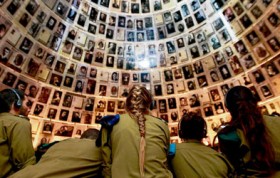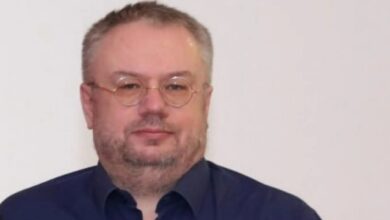 Yad Vashem Israel’s Holocaust museum, has by now managed to identify four million of six million Jews murdered by the Nazis and their collaborators during the second World War.
Yad Vashem Israel’s Holocaust museum, has by now managed to identify four million of six million Jews murdered by the Nazis and their collaborators during the second World War.
One and a half million new names were added over the last decade, increasing the list of confirmed victims by 60 per cent, as the museum stepped up efforts to counter Holocaust denial from neo-Nazi groups and Iranian president Mahmoud Ahmadinejad.
Yad Vashem chairman Avner Shalev said one of the museum’s main aims since it was set up in Jerusalem in 1953 had been to recover every victim’s name and personal story. “The Germans sought not only to destroy the Jews but also to erase their memory. One of our main missions is to give each victim a face and a name.”
The figure of six million victims was based on pre-war census lists of Jewish communities in areas occupied by the Nazis. Due to the difficulty of obtaining accurate information, particularly from eastern Europe and the former Soviet Union, Mr Shalev admitted a comprehensive tally was impossible, but said Yad Vashem was aiming to eventually account for five million victims.
In an effort to boost its database, in 2004 Yad Vashem launched its Pages of Testimony project. Visitors to the museum and to its website were encouraged to fill in special forms on the victims, which were then double-checked against existing archival information. The project was a huge success, and 55 per cent of the four million names came from Pages of Testimony.
Names of Jews deported from western European states, such as Germany, France and the Netherlands, were well documented. In the eastern areas occupied by the Nazis, mass killings and an absence of accurate lists of victims created a difficult task for Yad Vashem researchers.
In recent years the museum has focused its efforts on these areas, making significant headway. Whereas in 2005 only 20 per cent of the victims from Ukraine were listed, the figure today is 35 per cent. In Poland the percentage has risen from 35 to 46 per cent.
Mr Shalev said Yad Vashem was co-operating with east European states to obtain extra names from existing archives. “We will continue our efforts to recover the unknown names, and by harnessing technology in the service of memory, we are able to share their names with the world.”
[adrotate group=”8″]


